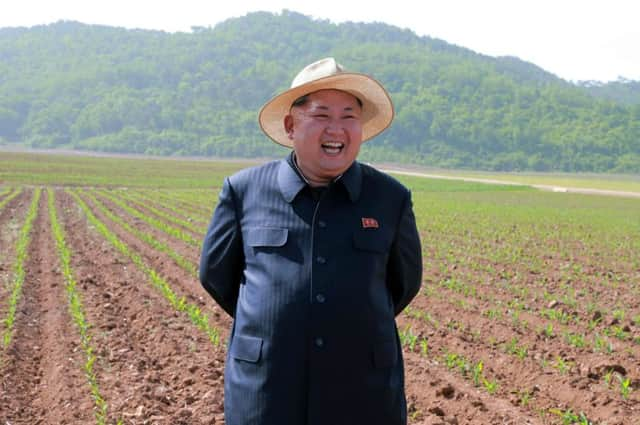North Korea looking to be green energy powerhouse


In an unusually high-profile campaign, the North has mobilised legions of “shock brigades” to complete two large hydro-power projects by 10 October. As is common with major North Korean construction efforts, the deadline is a date of national significance: the 70th anniversary of its ruling party.
Officials hope a noticeable increase will provide tangible proof that the party is working to improve the impoverished and heavily controlled nation’s standard of living.
Advertisement
Hide AdAdvertisement
Hide AdKim Kyong Il, a senior researcher at Pyongyang’s Academy of Social Sciences, said the goal is a 20 to 50 per cent increase in power compared with the 2014 level.
How effective its latest “speed campaign” will be is an open question. Even achieving its target would leave North Korea with a small fraction of what it needs to fuel a vibrant economy or even meet some basic needs of its population.
Experts stress the North needs more than just new power stations – it must improve its infrastructure to get the electricity where it is needed, secure spare parts and conduct sustained maintenance to keep the plants themselves going.
Supplying its industries and 24 million citizens with even a bare minimum of electricity has long been one of North Korea’s biggest problems, particularly after the fall of the Soviet Union in the early 1990s.
Since then, the international community has offered to help the North expand its power grid, if it agrees to dismantle its nuclear weapons programme, but to no avail.
North Korea’s total nationwide electricity output is believed to be about 15 terawatt hours a year. That would only be about enough to power Seoul, the South Korean capital of ten million, for less than four months.
It has been estimated, though never confirmed by Pyongyang, that about one-fifth of North Korea’s electricity is diverted to its one million-strong military. Moreover, a disproportionate amount of the nation’s power is used to light up Pyongyang, where less than one-tenth of the population resides.
Mr Kim, the government expert, said the North is shifting its focus in line with leader Kim Jong-un’s promise to improve the lives of his people and invigorate the economy.
Advertisement
Hide AdAdvertisement
Hide AdHe said North Korea is exploring wind and tidal power sources and added that solar already provides as much as half of the electricity in some rural areas. Small solar panels, seen by outside experts as a grassroots coping mechanism where state-provided energy is woefully lacking, are a common sight on apartment balconies and some countryside farms.
“Our country regards electricity as the engine of the national economy, so the state is increasing investment in this field,” he said. He added that a major portion of the 2015 national budget that didn’t go to defence has been earmarked for investment in the power sector, though he refused to give precise figures.
The expert added two major projects – Mount Paektu Songun Youth Power Station units No1 and No2 and Huichon Power Station units 5, 8, 9 and 10 along the Chongchon River – are expected to be completed in time for the anniversary.
The hydro-power station on Mount Paektu, near the Chinese border, was started under Kim Jong-un’s father, the late Kim Jong-il, but had been plagued by delays.
State media in the North have portrayed the race to complete the mega-projects as a heroic demonstration of national will.
“The young people have gone through thick and thin to flatten mountains, empty seas and conquer space,” the ruling party’s newspaper said recently.